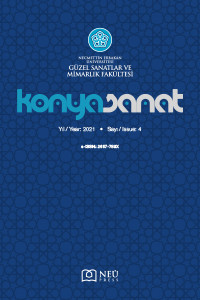Research Article
Book Review
Aim & Scope
Konya Art Journal, in the fields of Culture, Art, Fine Arts, Art and Science (Traditional Turkish Arts, Interior Architecture and Environmental Design, Graphics, Sculpture, Music, Painting, Performing Arts, Art History, Archeology Data, Conservation and Repair of Cultural Heritage, Ceramics , Cinema-Television, Communication Arts, Textile and Fashion Design, etc.) and to contribute to the world of science and art by supporting and publishing the transfer of knowledge and experience to future generations with original and qualified works produced in other art fields.
Konya Art Journal; Arts, Culture, Fine Arts, Applied Arts, Art Education, Traditional Turkish Arts, Interior Architecture and Environmental Design, Architecture, Interior Architecture Design, Environmental Design, Graphics, Sculpture, Music, Painting, Performing Arts, Art History, Archeology Data, Culture It covers all fields of art and work that are directly or indirectly in contact, especially in the Preservation and Repair of Assets, Ceramics, Cinema-TV, Communication Arts, Textile and Fashion Design. However, it is a peer-reviewed journal published electronically once (once) a year in which original approaches, methods, experiences and analysis based research on culture and art are published.
Author Guidelines
The adaptation of the articles to be sent to Konya Art Journal according to the template below is mandatory from the point of view of publication unity. Please adapt your work to this template.
Click here to download the article template.
Ethical Principles and Publication Policy
1. General actions contrary to scientific research and publication ethics
1) plagiarism: showing the original ideas, methods, data or works of others as their own work in part or in whole without attribution in accordance with scientific rules,
2) forgery: using data that does not actually exist or has been falsified in Scientific Research,
3) distortion: falsifying research records or obtained data, showing that devices or materials not used in research were used, falsifying or shaping research results in the interests of people and organizations receiving support,
4) Re-Publication: presenting duplicate publications as separate publications in academic appointments and elevations,
5) slicing: to present these publications as separate publications in academic appointments and promotions by dividing the results of a research into pieces in such a way as to disrupt the integrity of the research and in an inappropriate way and publishing them in more than one number,
6) unfair writing: among people without the active contribution of writers to include, or avoid including people with author ranking in a manner unbecoming and unjustified change, the names of those who actively contribute to the next edition of the works out, using its influence to write in the name of the active without the contribution of,
Other types of ethics violations include:
1) do not specify the person, institution or organizations that support and their contributions in publications made as a result of research conducted with support,
2) to use dissertations or works that have not yet been submitted or accepted by defense as sources without the permission of the owner,
3) do not comply with ethical rules in research on humans and animals, do not respect the rights of patients in their publications,
4) act in violation of the provisions of the relevant legislation in biomedical research and other clinical research related to humans,
5) sharing the information contained in a work that it is assigned to study with others before publication without the express permission of the owner of the work,
6) use of resources, Places, facilities and devices provided or allocated for Scientific Research,
7) allegation of unfounded, unwarranted and deliberate ethical violation,
8) publish the data obtained without the explicit consent of the participants in the survey and attitude research conducted as part of a scientific study, or if the research will be conducted in an institution, as well as without the permission of the institution,
9) damage to animal health and ecological balance in research and experiments,
10) in research and experiments, do not obtain the permissions that must be obtained before starting the work in writing from the authorized units.
11) conduct research and experiments contrary to the provisions of the legislation or international conventions to which Turkey is a party on relevant research and experiments.
12) failure to comply with the obligation of researchers and authorities to inform and warn interested persons about possible harmful practices in relation to scientific research,
13) do not use data and information obtained from other persons and institutions in scientific studies to the extent and manner permitted, do not comply with the confidentiality of this information and do not ensure its protection,
14) making false or misleading statements regarding scientific research and publications in academic appointments and upgrades, (YÖK directive on scientific research and publication ethics, Article 4)
In accordance with the ethical rules; research that requires the permission of the Ethics Committee for evaluation in the journal is as follows:
1. All kinds of research carried out with qualitative or quantitative approaches that require data collection from participants using survey, interview, focus group work, observation, experiment, interview techniques,
2. Use of humans and animals (including material/data) for experimental or other scientific purposes,
3. Clinical trials on humans,
4. Studies on animals,
5. Retrospective studies in accordance with the personal data protection act.
In this context, the studies to be evaluated in our journal;
1. Stating that “illuminated consent form”has been obtained in case reports,
2. Obtaining and specifying permission from the owners for the use of scales, surveys, photographs belonging to others,
3. It is necessary to indicate that copyright regulations are complied with for the ideas and works of art used.
4. The editors ensure that human and animal rights are protected in evaluated studies. The editors have the responsibility to refuse the study when there is no consent from the ethics board regarding the issues used in the study, experimental research. In studies requiring the permission of the Ethics Committee, information about the permission (name of the Board, date and number no) should be included in the method section and also on the first/last page of the article. In case reports, information about the signing of an informed volunteer/consent form should be included in the article.
2. RESPONSIBILITIES OF STAKEHOLDERS
Stakeholders and readers of research, published in the magazine a review of art seen in Konya on the status of scientific research and publication ethics konyasanat@edu.tr email address or to the coordinator of Necmettin Erbakan University scientific publications (biyak@erbakan.edu.tr to report welcomes.
a) responsibilities of Editors
Konya Art Journal will provide the following ethical duties and responsibilities based on the principles of COPE Code of Conduct and Best Practice Guidelines for journal Editors, COPE Code of Conduct and Best Practice Guidelines for journal Editors published by the Committee on Publication Ethics (COPE), and publication ethics Flowcharts developed by COPE in possible cases of abuse or violation of publication ethics :
1. Impartiality and freedom of the publisher: editors evaluate submitted article proposals based on their compliance with the scope of the Journal and the importance and authenticity of their work. Editors do not take into account the race, gender, sexual orientation, ethnicity, nationality or political views of the authors who submitted the article proposal. Other institutions other than the editorial board of the journal may not influence the decision to correct or publish. Editors take care that the published numbers contribute to the reader, researcher, practitioner and scientific field and are of an original nature.
2. Independence: the relationship between editors, (editor and Associate Editors) and publisher is based on the principle of editorial independence. According to the written agreement between the editors and the publisher, all decisions of the editors are independent of the publisher and the Journal owner. Editors should reject incomplete and erroneous research that does not comply with journal Policy, publication rules and level without any influence.
3. Confidentiality: editors do not share information about a submitted article with anyone other than the responsible author, reviewers, and editorial board. It ensures that articles evaluated by at least two referees are evaluated according to the double-sided blind refereeing system and keeps referees confidential.
4. Information and differences of opinion: editors and members of the editorial board do not use unpublished information in an article submitted for their own research purposes without the express written permission of the authors. Editors should not have a conflict of interest regarding articles they accept or reject.
5. Editorial decision: editors ensure that all articles accepted for publication are subject to peer review by at least two referees who are experts in their field. Editors are responsible for deciding which work to publish from the articles submitted to the Journal, the validity of the work in question, its importance to researchers and readers, the comments of reviewers and such legal requirements. Editors have the responsibility and authority to accept or reject articles. Therefore, he must use his responsibility and authority on the spot and on time.
6. Ethical concerns: editors will take measures when ethical concerns arise regarding a submitted article or published article. As a matter of fact, they continue their business processes without compromising intellectual property rights and ethical standards. Every unethical publishing behavior reported will be examined, even if it occurs years after publication. Editors follow COPE Flowcharts if ethical concerns arise. Correction, retraction may be applied if ethical issues are significant, or concerns about the issue may be published in the journal.
7. Collaboration with Journal boards: editors ensure that all members of the advisory committee advance processes in accordance with publication policies and guidelines. Inform the members of the advisory board about publication policies. It allows members of the advisory board to independently evaluate their work. New advisory board members can contribute and make decisions as appropriate. It should send appropriate studies to the expertise of the members of the advisory board for evaluation. He regularly interacts with the advisory board. It holds regular meetings with the editorial board for publication policies and journal Development.
B) responsibilities of authors
1. Reporting Standards: the authors of the original research must ensure that the work and results are presented correctly, followed by an objective discussion of the importance of the study. Article proposal should contain sufficient detail and reference.
2. Data access and retention: authors are required to store raw data of their work. If necessary, they must submit it for editorial review if requested by the journal.
3. Authenticity and plagiarism: authors must submit fully original works, and if they have used the work or words of others, this must be appropriately quoted. Plagiarism constitutes unethical publishing behavior in all its forms and is unacceptable. For this reason, all authors who submit articles to the Journal are asked to report on the similarity rate.
Price Policy
Article system and its use.
Indexes
Journal Boards
Editor






Assistant Editor








Managing Editor

Advisory Board







Publication Board

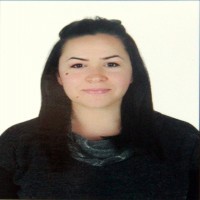
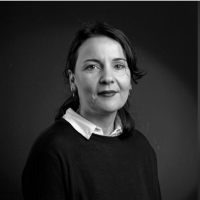
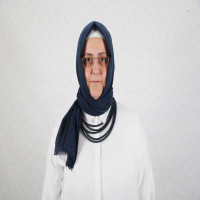






Field Editors




Ethics Editor

Copy and Language Editor

Layout Editor

Language Editor
Statistics Editor







